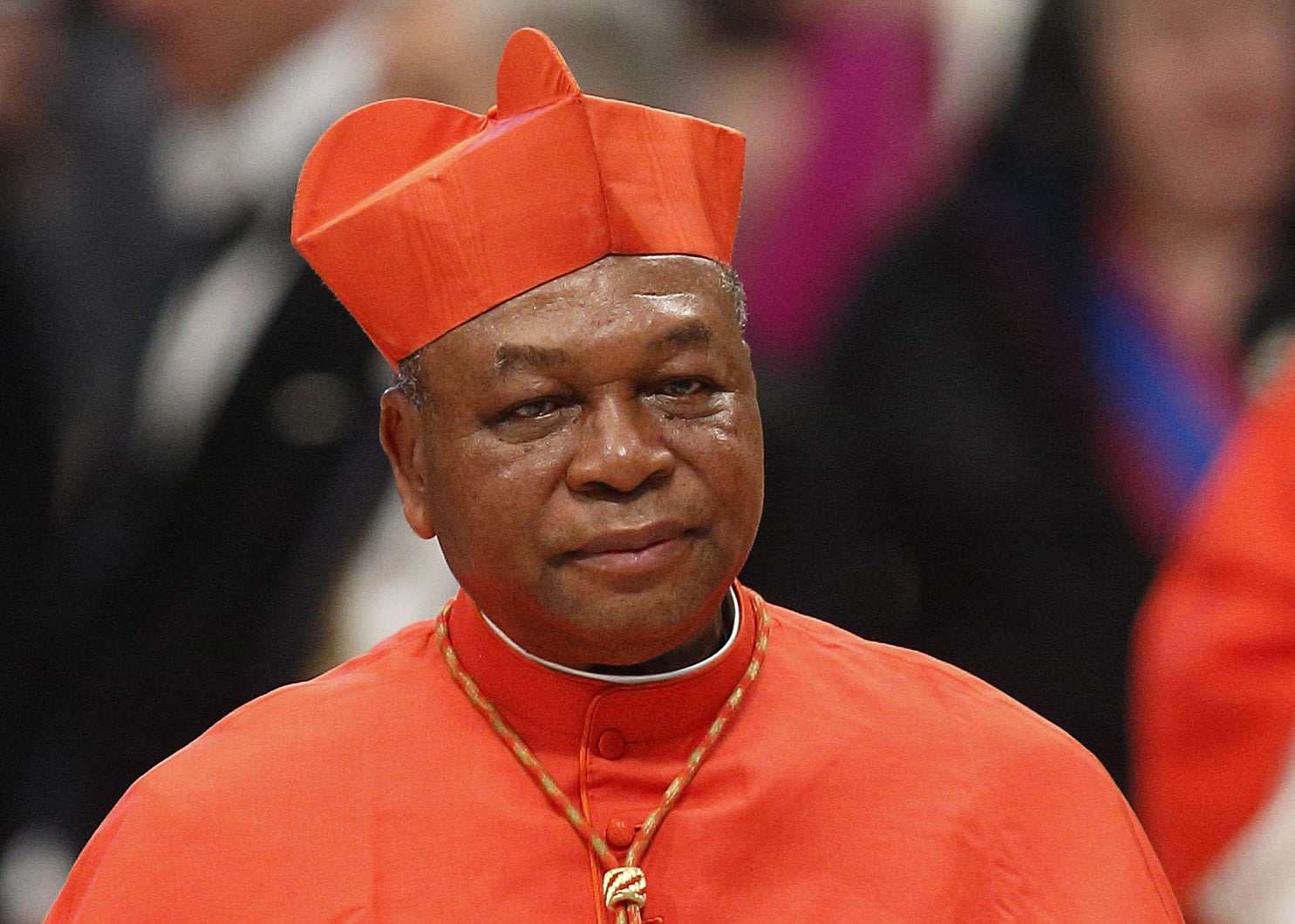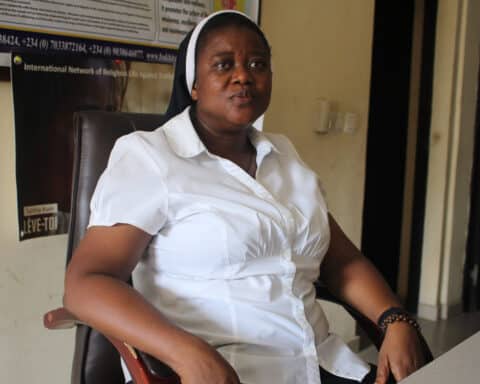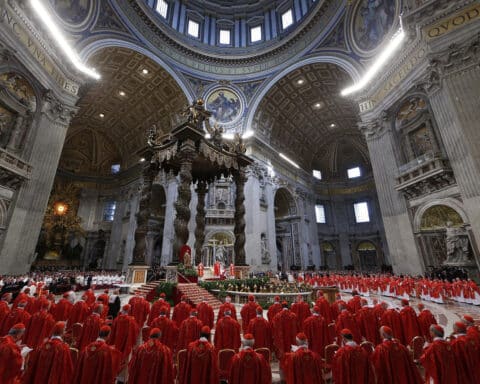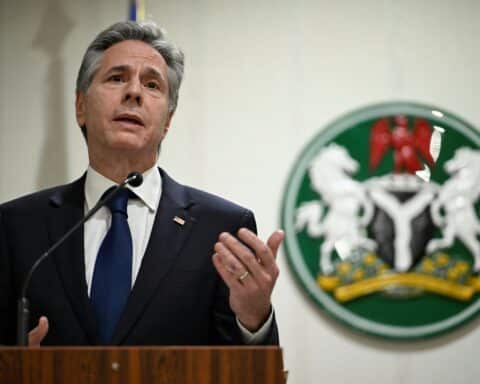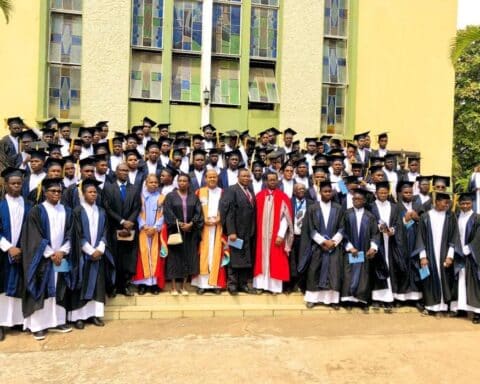Nigerian Cardinal John Onaiyekan’s life has been marked by his commitment to the Church and tireless advocacy for peace.
From his humble beginnings as a seminarian to his pivotal role in shaping Nigerian history during his tenure as archbishop of Abuja, he has consistently exemplified unwavering dedication to the Gospel and to the well-being of his fellow Nigerians.
Cardinal Onaiyekan retired in 2019 as archbishop of Abuja, but today remains highly engaged in advocacy and pastoral work. The cardinal recently spoke at the University of Notre Dame, highlighting the significant contributions the Catholic Church has made to the cause of peace in Africa. Readers can watch the entire lecture here.
This interview has been edited for length and clarity.
Our Sunday Visitor: Let’s begin by delving into your vocation. Can you share with our readers how you first felt the call to become a priest?
Cardinal Onaiyekan: Certainly. I’ve been closely connected to the Church throughout my life. I entered the seminary as a young teenager because I had a deep desire to become a priest. I can’t remember a time when I didn’t want to be one. The Irish and Scottish missionaries who worked in Nigeria at that time left a strong impression on me, and I wanted to be like them. It was a desire to be part of something special, something that was not very common at the time, because I did not see many Nigerian priests around. As time went on, of course, I began to meet other young people who also wanted to be priests.
I received my theological training in Rome, as a young seminarian and came home for ordination. After two years my bishop sent me back to Rome for further studies at the Biblicum and the Urbaniana. All this was training me for a specific apostolate: to be part of the formation team of the major seminary where I eventually ended up as rector and professor of Scripture. That’s how my life, I thought, would remain – as a priest teaching in the seminary. But soon after, in 1982, I was appointed auxiliary bishop of a diocese that is heavily Muslim by Pope John Paul II. Since then, I have been going from one episcopal appointment and pastoral activity to the next!
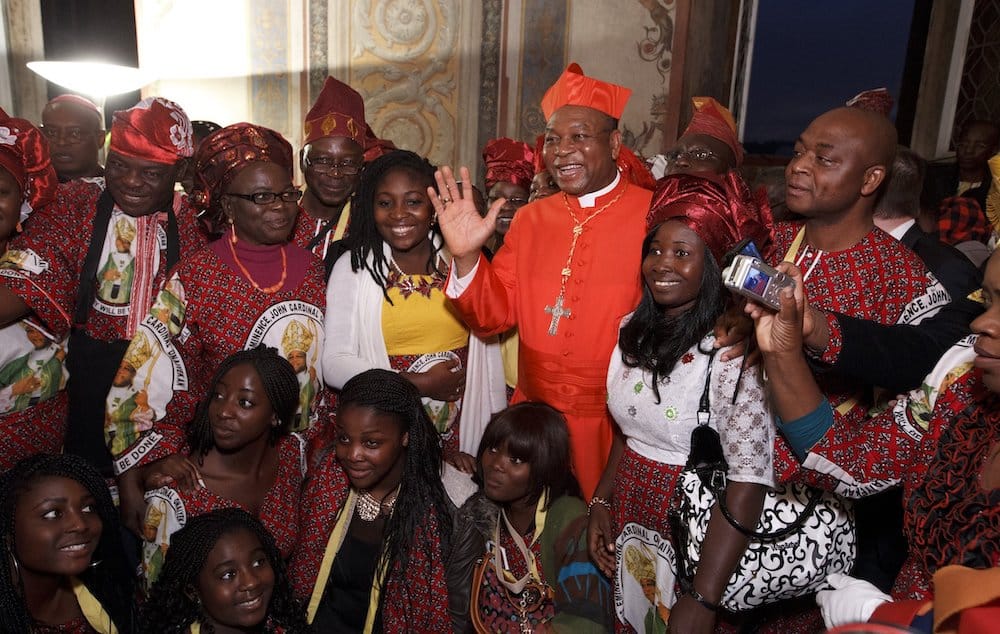
Our Sunday Visitor: Your journey has indeed been remarkable. You are credited with persuading the President not to pursue a third term in office. Could you share more about this significant moment and the impact of your message?
Cardinal Onaiyekan: Certainly. In Africa, elections are very problematic and the people who are in power always make it almost impossible to lose; they’re not supposed to lose elections. The result, therefore, is that the country goes through the motions of elections every four years, but with the same results and the same ruler. That’s why, for example, we have in Cameroon, Paul Biya. He has been ruling now for more than 40 years. He is almost 90 years of age and he still wants to continue ruling.
We have a similar situation in the Ivory Coast with President Ouattara. Since 2000, Paul Kagame has been the president of Rwanda. There has been nobody else who is good enough to replace him. So he continues to be president, because he continues to win elections. Ditto with his neighbor in Uganda. President Museveni has been ruling Uganda since 1986. If the constitutional limit is not imposed, the ruler will always impose himself on the people.
In Nigeria, when rumors circulated that our president was considering a third term, I had the opportunity, during the independence day celebration, to preach in the cathedral. I didn’t directly attack him but used diplomacy. I said that rumors are going around that our president is trying to have a third term and that I am sure that our president is not that kind of a person. He is a man who will respect the rule of law and all those who are peddling these rumors should please desist and stop taking our country into the wrong direction. After my statement, others began to speak out, and it eventually led to him not pursuing a third term. People keep saying that I am the one who stopped him. Well, if that is the case, so be it. It did not ruin my friendship with him because after, we continued to be friends, even after that.
Our Sunday Visitor: Your actions were undoubtedly courageous and played a pivotal role in ensuring democratic principles were upheld. You’ve also served as President of the Christian Association of Nigeria. Could you elaborate on the role of Christianity in Nigeria, especially considering the challenges faced by Christians in the country?
Cardinal Onaiyekan: My appointment as a bishop already put me in a leadership position in the country among the Christian communities. Among my fellow bishops, as a young bishop, I was elected the secretary of the conference, taking the minutes and all that. Very soon I was elected chairman of the Theological and Biblical Commission. And after serving the conference at this level, I was elected vice president of the conference and finally president of the Conference. It was because I was president of the Catholic Bishops’ Conference of Nigeria that I was elected president of the Christian Association of Nigeria.
Serving as the president of the Christian Association of Nigeria allowed me to supervise and coordinate activities among different Christian groups, which was often challenging due to differences within the Christian community. We have difficulty agreeing on serious matters. But the forum helps us to face the government and when we need a common voice in conversation with our Muslim leaders.
Additionally, I was actively involved in establishing the Nigeria Inter-Religious Council, where leaders of both Christianity and Islam regularly meet to discuss issues that may otherwise lead to conflicts. People think that it is just a matter of meetings and photographs and television and radio, but I personally believe that it is making an impact. The very fact that every quarter we have a forum where we can meet as Nigerians from the two different religions is amazing. We can discuss issues that are tearing us apart. We may not always resolve those issues, but at least we have a peaceful room for discussing our problems. Instead of things getting out of hand and becoming violent and adding to conflict, that is where we are right now.
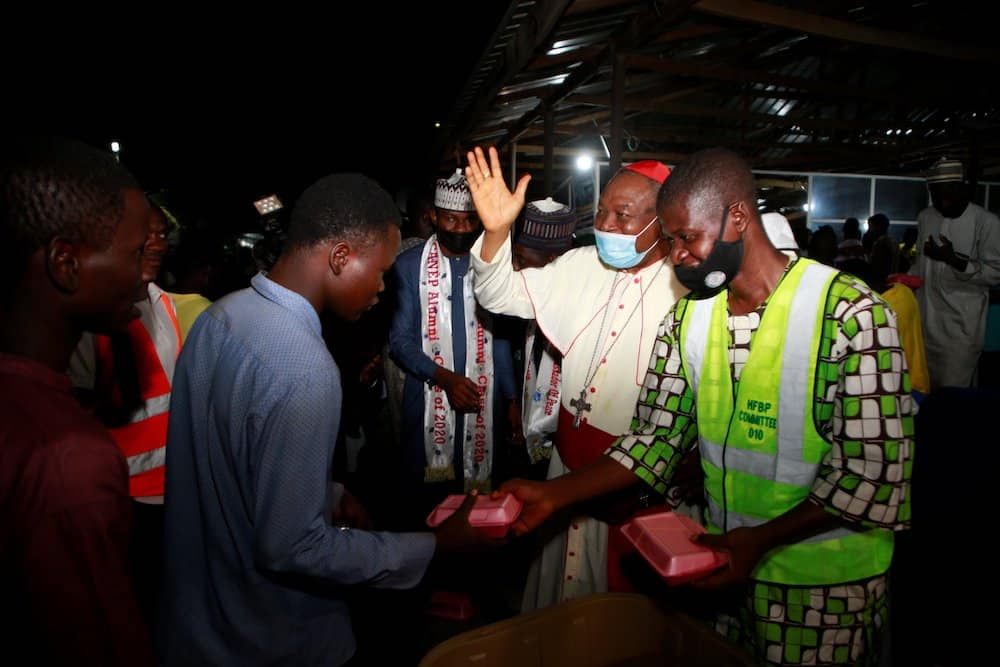
Our Sunday Visitor: What needs to happen so that there can be peace in Nigeria?
Cardinal Onaiyekan: What needs to happen? Everybody must play his role. Everybody must have an interest in living peacefully with his fellow Nigerian. We keep insisting that God has put us together in that country and we belong to different faiths and that this is not a mistake on the part of God. We should therefore do our best to reach out to the other, welcome one another, respect one another, despite our differences of ethnic identities and of religious identity. This is necessary.
We must work together. We also know that to have peace in the nation you need political leadership that can run the nation well on the basis of justice and peace. But right now we have a serious problem with political leadership all across the board. That is why we are always doing our best to convince our political leaders to make sure that the rules of governors are observed, and that if we consider that we want a democratic government, we should obey the rules of democracy, instead of rigging elections and telling lies.
Our Sunday Visitor: Your efforts in promoting interreligious dialogue and understanding are commendable. Lastly, for our American readers, what would you like them to know about the situation in Nigeria and how they can contribute to peace and development in the region?
Cardinal Onaiyekan: It’s important for Americans to understand that Nigeria, like many African nations, is rich in natural and human resources but faces challenges due to poor governance and leadership. I would urge Americans to pay attention to the issues affecting countries like Nigeria and to use their influence to encourage good governance and leadership. It’s crucial to support leaders who prioritize the well-being of their people over personal gain. Africa, with its hardworking and brilliant population, can emerge from its challenges with the right leadership. By advocating for justice, love, and peace, both within and beyond our borders, we can work towards a better future for all.

